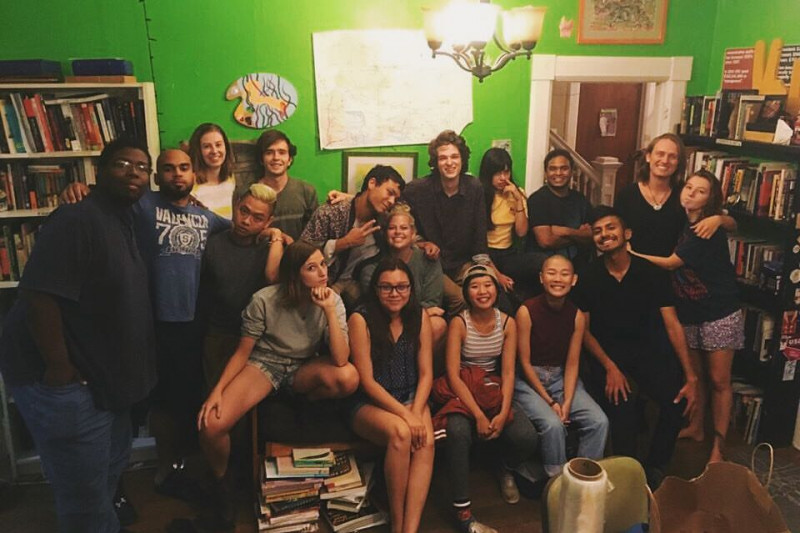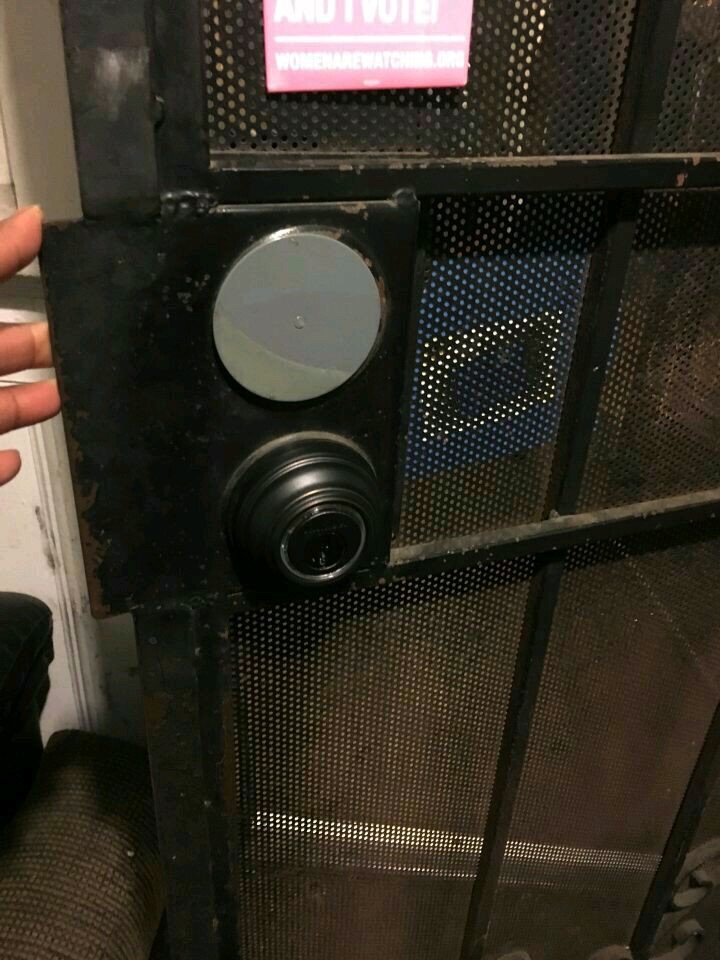
Landlord individually suing USC student tenants from the Technicolor Tree Tribe
‘I’ve probably missed over 50% of my classes this semester just because of f*cking going to the courtroom’
Senior year should be about hanging out with friends, getting through those last few units, and celebrating the craziest four years of your life — not being sued by your landlord.
Unfortunately, this is the reality for second-semester senior Ray Carroll who already had to appear in court once since school started up again, and it’s only the second week back.
Carroll lives in the intentional community, the Technicolor Tree Tribe (TTT), a co-op going on its eleventh year which strives to achieve complete inclusion for its tenants, most of whom attend USC.
According to Carroll the co-op is, “a non-hierarcical, anti-racist, anti-classist, feminist, queer, consensual, and environmentally conscious space. This is a home where we cook, clean, and care for each other, and where love is our first language.”
The way students who live in TTT talk about their experience is unlike the way anyone else talks about living near USC’s campus.
“The co-op has, historically speaking, been a space for economically underprivileged students,” Carroll said. “I very well may not have been able to continue at USC if I had not found this super cheap housing option.”
The house actually started out of convenience as a way for students looking to challenge some of President Nikias’ policies to coordinate with each other more easily. Carroll explains that the co-op was born “directly out of economic activism and activism that tries to keep people of color and women at the center and at the focus.”
Sophomore Ellis Rovin recently started dealing with the bulk of the issues regarding the house as sort of a full-time job. Of living in TTT he says, “I think for a lot of people [in the house], when they go home and people ask ‘Oh, how’s college?’, the co-op is one of the first things you bring up. It’s a pretty involved living experience.”
“It is my favorite part of going to USC,” adds Carroll.

The fact of the matter is these students are facing possible eviction from their home as one of their landlords, Leobardo Zamora, wants to sell the house. In order to go through with this, the current residents need to be out, but given the time of year and their financial situations, realistically this would leave many of them completely homeless.
According to Rovin, TTT first learned of their possible eviction because, “[Zamora] advertised our home [on Craigslist] being available for rent by the New Year, despite our lease being good for another several months.” The listing has since expired.
Now, in order to get the tenants out of the home, Zamora sued each of them. This means that for Carroll and Rovin this semester will revolve around legal proceedings and an extensive fight to keep their housing, not just for themselves, but to continue the existence of TTT.
“I’ve probably missed over 50% of my classes this semester just because of f*cking going to the courtroom, being in court, talking to lawyers– all of that combined,” Rovin said.
The possibility of being evicted isn’t just effecting their current academic standings, but their ability to find future housing as well.
“An eviction will go on our permanent record,” Carroll said. “It’s kind of like a credit score and that makes it more difficult. [Leobardo Zamora]’s literally f*cking up the rest of our lives.”
Evictions are added to the “public records” section of a credit report if decided through a civil court judgment, which in this case, they would be.
This also isn’t the only kind of altercation TTT has incurred with their landlord. From Nov. 15-Jan. 15 the tenants claim Zamora came to the house 26 times for various reasons, sometimes visiting twice in one day.

Here, a ledger complied by the tenants shows two visits by Zamora on Nov. 19, as well as on Dec. 16.
“The other day we were just hanging out in our kitchen and he just, like, walks in our back door with a ladder. He just walked into our house,” Rovin said. Carroll claims the reasoning behind the visits are to prove they can’t escape Zamora’s presence.
Rovin compiled a ledger containing the details of the landlord’s visits. Among these include Zamora taking out the keypad used to enter the house and leaving the door with a single dead bolt (no doorknob) and a Bluetooth system so he can gain access at any time using only his phone; having his friends come around late at night to watch the house for hours, eventually entering to “install” various appliances; and coming by himself to inspect “hazardous materials” he claims are listed to be in the house.

The security system on the door to the eight bedroom home
Recently Rovin attempted to file a permanent restraining order against Zamora after obtaining a temporary one, however Carroll claims they were shot down and “laughed out of court.”
When Rovin went to file the temporary order with the police, he found that Zamora and one of his “goonies” Kendall Davis actually followed him to the station to give vases of flowers to the police officers.
“It’s a f*cking cartoon,” Rovin said.

These entries from the ledger detail the incident at the police station.
The students have legal help from the Eviction Defense Network, which helps keep their legal costs low as the organization charges on a sliding scale. However, TTT still needs some help paying for the services. In the past nine days they exceeded their goal to raise $5000 through their GoFundMe page.
They will also host a “Save the TTT” party at their house on Saturday, Jan. 28, with an entry fee of $5 with all proceeds going towards their legal fees.
When asked if there is anything they want to leave the USC community with, Carroll and Rovin decided on this:
“If you come across a property, because [we] know this is the time when people are looking for housing next year, if you see any property managed by Leobardo Zamora: no. Just, like, bail.”
Leobardo Zamora was approached for comment, but no response.
